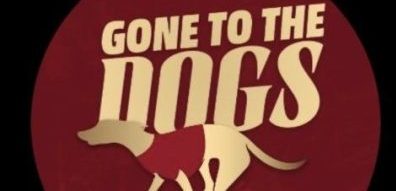TWO interesting articles from Jim Cremin earlier in the week.
On Sunday there was a largely positive piece about Towcester, with a blast of uncharacteristic frankness from new BAGS chairman Dominic Ford.
Towcester, it appears, are having too many winning favourites!
(Sharp intake of breath!)
Now you don’t need to have been in the greyhound industry for more than about 20 minutes to know that the bookies are not good losers, which is why all betting slips carry the small print ‘thou shall not win’. (Its in really small writing – you check!)
In my 40 plus years as a greyhound fan, I can remember dozens of inquiries into winning gambles, but none into losing gambles. When BOLA said ‘jump’ the NGRC became fleas.
On the flip side – nobody is forced to apply for a BAGS contract. As Formula One boss Max Moseley might point out, if you are paying somewhere between £8-12,000 for a service, your fancy can be tickled in any way you choose.
A day later, Jim produced another decent piece about the broadcasting of horseracing and greyhound racing.
It included mention of the new deal between Turf TV and the Irish Greyhound Board to bring meetings from three Irish tracks.
I cannot be the only one to see the irony of the two articles. Cos, last time I looked, there was very little about Irish greyhound racing that would suit the UK off-course betting industry – or even the Irish layers.
This is not ‘anti Irish racing’. As a boy bought up on the flaps, there is so much that I prefer about Irish racing. There is a greater freedom of rules. If a young pup wins by 12 lengths in the fastest time of the night, it is a cause for celebration, not a stewards inquiry.
The dogs are largely trained from people’s homes, the form is scattered and by UK terms, inconsistent. While the top city tracks produce racing of arguably better quality than their UK equivalents, rural racing is like it used to be here – more about fun than regulations.
Then there is the betting. The first race at Kilkenny last night was nothing exception: 2-1, 5-2, 3-1 (each of four). To be fair, if BAGS thought they could get away with percentages of +150%, they’d be all over it.
Then there is the drugs issue. Lots of British trainers have a view on this, but will never allow themselves to be quoted in the press.
Let’s just say that if there is a significant outcome to all the positive tests at last year’s Irish Puppy Derby, it might decrease our scepticism.
But moving on – surely the real question is – why would Turf TV want or need to go to Ireland?
Well the future of broadcasting and betting is about to get complicated and way beyond the comprehension of bloke who was cleaning out kennels when he should have been smoking cannabis in sixth form.
Here’s the picture as I understand it. Back in the mid 2000s, the horserace courses decided to band together. So when the off-course bookmakers called them into meetings, one at a time, to inform them of their payments for the following year, the bookies were politely told to swivel on it.
It all went to court in 2008, and much to everyone’s surprise, the judge gave the go-ahead to a new collective organisation, Turf TV.
There would have been a few greyhound promoters and administrators turning in their graves because when they had tried something similar 30 years earlier, but were legal advice was that they would be operating a cartel.
Anyway, Turf TV set off with the majority of the bigger racecourses and Alphameric as their IT partners.
SIS retained the services of many of the smaller tracks through the Arena Racing Company (ARC). The net result was that the betting industry now had a double pay-out for its horse racing service.
However, time moves on and the Turf TV racecourses – now wiser about the intricacies of broadcasting – are apparently considering their options including ditching their venture capitalist partner, which is now Timeweave, controlled by Joe ‘Tottenham Hotspur’ Lewis.
In the meantime, the remaining racecourses are not certain to renew their contracts with SIS.
So we could have a situation whereby Turf TV and SIS are potentially two companies struggling for product.
So far so good. But now the bit that makes a calculation for reconciling quantum theory and general relativity seem like a 10-minute crossword.
While both sets of tracks want more for their product, the betting industry is sinking. Not only have the Government hammered their FOBT (jackpot) machines, they are now taking further cash with their ‘point of consumption’ betting tax.
The net result is that betting shops are closing, and looking for cheaper alternatives to horse racing. That provides a mixed message for greyhound racing. Certainly the closure of shops is bad news in terms of future BAGS contracts.
Then there are other service providers, most notably Racing Post Greyhound TV.
They pay tracks a fraction of the figure paid by BAGS and with exception of Bet365, (the Corals position is unclear) none of the money bet on-line goes into the voluntary payments that sustain the British Greyhound Racing Fund.
Now allocate another blackboard to calculate another part of our theorem. What part will the individual bookies play?
Between them they own SIS and RPGTV. But they are also fierce business rivals and the Big Three own their own stadia.
They are still to make long term commitments to SIS/BAGS. Will they break away individually? Or will they increase their greyhound commitment beyond their current interest which seems to be ‘cheap filler’?
If they do go alone, would that encourage the likes of Bet365, Betfair and Betfred to buy their own tracks?
Another blackboard – what role will the Government play in its allocation of a “Racing Right’? Will greyhound racing be included?
Thankfully, with most BAGS contracts not due to be renewed until 2019, which just might give the greyhound industry some breathing space to see what develops.













